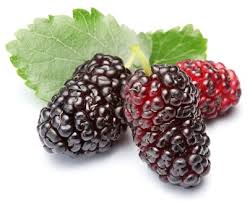mulberry
英 [ˈmʌl.bər.i]
美 [ˈmʌl.ber.i]
- n. [植][蚕] 桑树;[植][中医] 桑椹;深紫红色
- adj. 桑科植物的
- n. (Mulberry)人名;(英)马尔伯里
星级词汇:

记忆方法
记忆“mulberry”可以将其分解为“mulb”和“erry”。想象一颗“mulb”(类似“mule”的样子,但想象它更小巧),这颗“mulb”是一颗“erry”(类似“苹果”的树)。这样,“mulberry”就可以形象地记住为一个类似苹果的果实树。
以上内容由AI生成, 仅供参考和借鉴
中文词源
mulberry 桑树,桑葚
来自拉丁语murum,黑莓,桑葚,字母r 弱化成l.berry,莓子。
英语词源
- mulberry (n.)
- late 14c., developed from 13c. morberie, or cognate Middle High German mul-beri (alteration by dissimilation of Old High German mur-beri, Modern German Maulbeere); both from Latin morum "mulberry, blackberry," + Old English berie, Old High German beri "berry." The Latin word probably is from Greek moron "mulberry," from PIE *moro- "blackberry, mulberry" (cognates: Armenian mor "blackberry," Middle Irish merenn, Welsh merwydden "mulberry"). Children's singing game with a chorus beginning "Here we go round the mulberry bush" is attested from 1820s, first in Scotland.
权威例句
- 1. Silkworms are fed mulberry leaves after they have hatched.
- 蚕孵出后食桑叶.
- 2. In another couple of years they'll even be wanting foreign mulberry trees!
- 过几年他们连桑叶都要洋种了!
- 3. Behind the row of mulberry trees were paddy fields.
- 那一片桑树背后就是稻田.
- 4. The spurting blood turned the white mulberry tree into a dark purple.
- 那飞溅的鲜血把那棵白桑树也染成了深紫色.
- 5. Silkworms feed on the leaves of mulberry.
- 蚕吃桑叶.